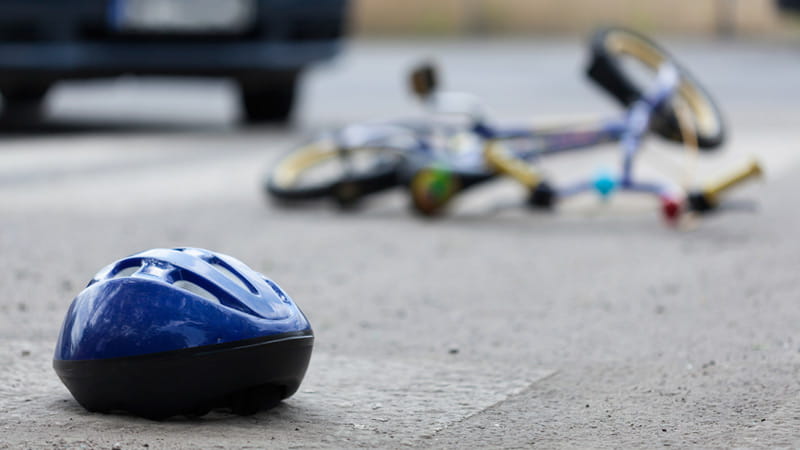
PICTURE the scene: you are walking down a city centre street when you see a small gathering of people up ahead. A shopper has collapsed and one of the people around him is calling out for medical help. As a trainee doctor – what should you do?
This type of dilemma prompts frequent calls to the MDDUS advice line with doctors asking about their obligations to act as a so-called “Good Samaritan”, and the risks this involves.
Any concerned member of the public, medically qualified or not, may act as a Good Samaritan. For a doctor, Good Samaritan acts encompass the provision of medical services in emergency situations which are outside the scope of an individual’s normal contractual obligations or clinical practice. Simply, a passing-by, off-duty doctor who assists a stranger in need would be a Good Samaritan.
The law
By law, doctors across the UK have no obligation to assist in an emergency outside the terms of their employment contract.
While doctors may wish to assist an individual in difficulty, they may be concerned about the risk of a potential claim arising out of their actions. The Social Action, Responsibility and Heroism Act 2015 (SARAH) may provide reassurance to Good Samaritans in England and Wales: it advises a court that, were a claim to arise from such an action, it should consider whether that action was a reasonably responsible intervention in an emergency for the benefit of an individual or society.
In all areas of the UK, it is unlikely that a doctor would be criticised if acting in line with SARAH, guided by common sense and the overriding principle to do no harm. MDDUS believes that a doctor’s risk in assisting a stranger in distress is very low, and indeed has never encountered a case arising from a Good Samaritan act performed by one of its members.
Professional duties
While under no legal requirement to assist in an emergency, doctors have an ethical obligation to do so. The GMC sets out the professional standards expected of doctors. It states in Good medical practice that doctors “must offer help if emergencies arise in clinical settings or in the community, taking account of your own safety, your competence and the availability of other options for care.”
In the case of the collapsed shopper, the doctor must first consider whether it is safe to attend, and ascertain whether anyone else is better placed to assist, especially if the doctor believes that their judgement may be impaired for any reason.
Doctors must abide by the same ethical duties that apply in conventional patient care when they assume a duty of care to assist someone as a Good Samaritan. Doctors must make the care of a patient their first concern. They are obliged to act within the scope of their competence and, in the case of a Good Samaritan act, to make any limitations clear to the person in need and those attending. Doctors must consider the issue of consent in all patients and act in the best interests of those who lack capacity. In addition, doctors must ensure that continuity of care is maintained.
The doctor must work collaboratively with any other medical professionals who attend the collapsed shopper, gauging who is best placed to assist and lead the care. As with any other clinical interaction, the doctor should obtain as comprehensive a history as possible and undertake an appropriate examination in the circumstances. If further support is required from emergency services, the doctor must provide relevant information to those in attendance. The GMC reminds doctors acting in a professional role to provide their name and GMC number to anyone who requests it.
The Good Samaritan doctor may wish to document their involvement in the care provided, guided by the significance of the incident. This doctor is bound by the same duty of confidentiality to the stranger as with any other patient.
The GMC states that being unregistered, or registered without a licence to practise, does not stop a doctor helping in emergencies. It is against the law, however, for doctors to present themselves as a registered doctor if they are not.
Indemnity
Doctors are reminded that the benefits of MDDUS membership include access to worldwide indemnity for Good Samaritan acts. It is vital to note the difference between offering assistance in an emergency situation and volunteering in advance to provide medical care, such as at a sporting or charity event. A well-intentioned undertaking to assist as a healthcare provider in a setting outside a doctor’s usual area of practice would not be considered to be a Good Samaritan act, and members wishing to undertake volunteer work should contact the MDDUS to discuss this in advance of the event.
The MDDUS provides emergency advice 24 hours a day, and doctors should contact an adviser if they wish to discuss any urgent concerns related to a Good Samaritan act.
Dr Greg Dollman is a medical adviser at MDDUS
This page was correct at the time of publication. Any guidance is intended as general guidance for members only. If you are a member and need specific advice relating to your own circumstances, please contact one of our advisers.
Read more from this issue of FYi

Save this article
Save this article to a list of favourite articles which members can access in their account.
Save to library
